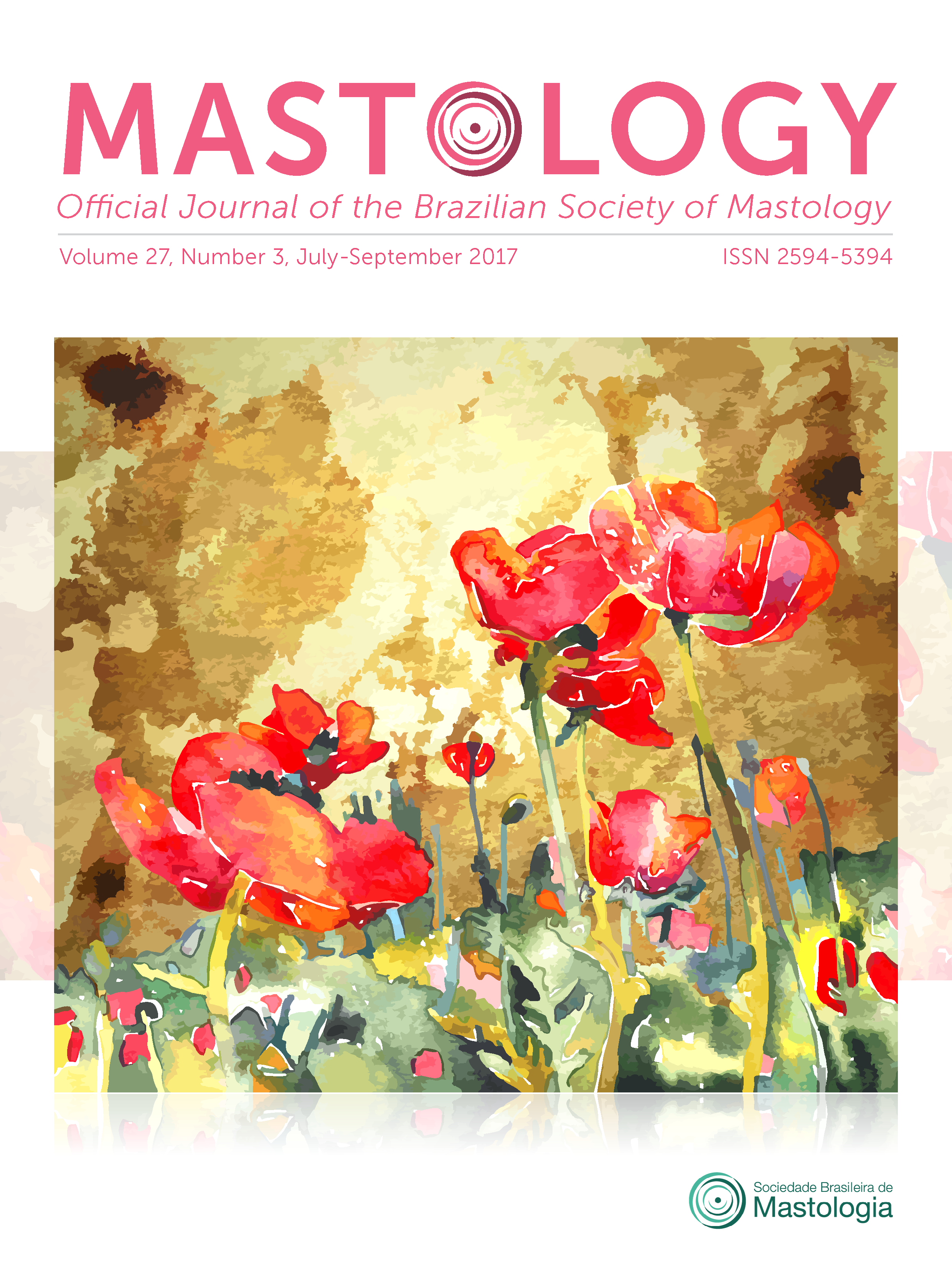TRENDS AND ATTITUDES TOWARD ONCOPLASTICS TRAINING IN MASTOLOGY IN BRAZIL
Keywords:
Breast reconstruction, oncoplastic surgery, education, medical, breast neoplasmsAbstract
Introduction: There is a growing interest in, and an increasing demand for, oncoplastic (OP) and reconstructive surgery training by breast surgeons. However, until now there has been a lack of a specific model for training in this field in most countries and no data with respect to learning curves. Mastology has been a medical specialty in Brazil since 1978. It is fully dedicated to studying, preventing, diagnosing, and managing all diseases of the breast. Incorporation of OP and reconstructive surgery in Mastology presents a number of challenges, and there are some controversial issues to overcome. Objective: The purpose of this study, therefore, was to analyze how OP and reconstructive techniques are being incorporated into surgical training in Mastology in Brazil. Methods: A specific survey was designed to cover all surgical residents who concluded their regular program in Mastology in Brazil in 2015 and 2016. Results: One hundred twenty-four residents from 49 breast units were included, with the majority having their training for all 2 years of their residence, as recommended by the Brazilian Society of Mastology. In addition, most of the respondents were able to perform partial breast reconstructions and reconstructions using expanders and implants, but 20% of them had a lack of specific training in these techniques. Conclusion: As adequate local control of disease and quality of life are related to surgical decisions, it is expected that breast surgeons expand their limits and responsibilities in order improve the reality of most breast cancer patients.
Downloads
References
Waljee JF, Hu ES, Ubel PA, Smith DM, Newman LA, Alderman AK. Effect of Esthetic Outcome After Breast-Conserving Surgery on Psychosocial Functioning and Quality of Life. J Clin Oncol. 2008;26:3331-7.
Rombeau J, Goldberg A, Loveland-Jones C. Surgical mentoring: building tomorrow’s leaders. New York: Springer; 2010.
Urban CA. New classification for oncoplastic procedures in surgical practice. The Breast. 2008;17(4):321-2.
Cardoso MJ, Macmillan D, Merck B, Munhoz AM, Rainsbury R. Training in oncoplastic surgery: an international consensus. The 7th Portuguese Senology Congress, Vilamoura, 2009. The Breast. 2010;19:538-40.
Brown I, Wilson CR, Doughty JC, George WD, Cooke TG, Weiler-Mithoft EM, et al. The future of breast surgery: a new subspecialty of oncoplastic breast surgeons? The Breast. 2004;13:82.
Audisio R, Chagla LS. Oncoplastic fellowship: can we do better? The Breast. 2007;16:11-2.
Down SK, Pereira JH, Leinster S, Simpson A. Training the oncoplastic breast surgeon—current and future perspectives. Gland Surg. 2013;2(3):126-7.
Pass HA, Klimberg SV, Copeland III EM. Are “breast-focused” surgeons more competent? Ann Surg Oncol. 2008;15:953-5.
Losken A, Kapadia S, Egro FM, Baecher KM, Styblo TM, Carlson GW. Current Opinion on the Oncoplastic
Approach in the USA. Breast J. 2016 (in press). doi: 10.1111/tbj.12592
Urban CA. Oncoplastic in pre-paradigm era: a Brazilian perspective in an American problem. Plast Reconst Surg. 2010;125:1839-41.
Nahabedian MY. “Plastic surgery”… beware. Plast Reconstr Surg. 2014;133:965-6.
Losken A, Nahabedian MY. Oncoplastic breast surgery: past, present, and future directions in United States. Plast Reconstr Surg. 2009;124:969-72. Urban CA, Schwartz JC. Oncoplastic surgeons: heros or villains? Plast Reconstr Surg. 2014;133:845-6.
Urban CA, Rietjens M, Hurley II J. Oncoplastic and reconstructive surgery: qualifications, limits, and mentoring. In: Urban CA, Rietjens M (eds.). Oncoplastic and reconstructive breast surgery. New York: Springer; 2013.
Munhoz AM, Aldrighi CM, Ferreira MC. Paradigms in oncoplastic breast surgery: A careful assessment of the oncological need and esthetic objective. Breast J. 2007;13:326-7.
Matthes AGZ, Vieira R, Micheli RAD, Ribeiro GH, Bailão A Jr., Haikel RL, et al. The development of an oncoplastic training center – OTC. Int J Surg. 2012;10:265-9.
Liedke PE, Finkelstein DM, Szymonifka J, Barrios CH, Chavarri-Guerra Y, Bines J, et al. Outcomes of breast cancer in Brazil related to health care coverage: a retrospective cohort study. Cancer Epidemiol Biomarkers Prev. 2014 Jan;23(1):126-33.
Lee BL, Liedke PE, Barrios CH, Simon SD, Finkelstein DM, Goss PE. Breast cancer in Brazil: present status and future goals. Lancet Oncol. 2012 Mar;13(3):e95-e102.
Downloads
Published
How to Cite
Issue
Section
License
Copyright (c) 2017 Cícero Urban, Orivaldo Gazoto Júnior, Douglas Miranda Pires, Guilherme Novita Garcia, Regis Resende Paulinelli, Vanessa Amoroso, Ruffo Freitas Júnior

This work is licensed under a Creative Commons Attribution 4.0 International License.







